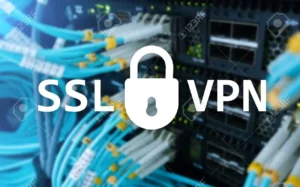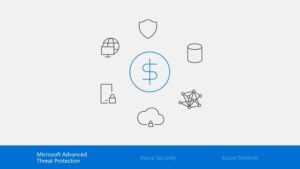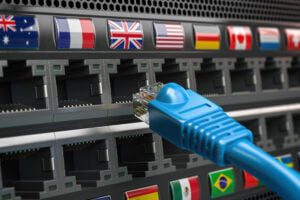Endpoint security; this term is one of the most commonly heard in recent years during major security events, conferences, webinars, and blogs.
Similarly some call it a mandatory part of the security platform, on the other hand, others say it is just a new term for antivirus and others call it an overrated approach. Above all, one thing is clear: it is a term that does not immediately clarify what can be expected from it.
Summary
In this blog, I will talk about endpoint security, what it really means, involves and why organizations need endpoint security without a doubt.
Endpoint security is protecting end-user devices such as mobile devices, laptops and PCs, servers; any device connected to your corporate network. However, these endpoints can be considered as a entry point to the network.
Gartner Endpoint Security Definitions
O Gartner releases several Magic Quadrants every year, including those for endpoint security, in order to provide a baseline for many companies regarding their security strategy.
In the Magic Quadrant for endpoint security, the strengths and weaknesses of 21 EPP (Endpoint Protection Platform) vendors are evaluated every year.
In 2018, Gartner defines endpoint protection as "a solution deployed on endpoint devices to prevent file-based malware, to detect and block malicious activity from trusted and untrusted applications, and to provide the investigative and remediation capabilities needed to dynamically respond to security incidents and alerts.
Further, he adds, "I think it's important to put this definition here because, like everything in security, this approach is likely to be temporary and will change over time." Even the above definition contrasts with the 2017 definition.
Security, or Endpoint Detection and Response (EDR) protection was considered a necessity in 2017, however that in 2018 is considered a welcome addition, according to Gartner.
Evolution of Endpoint protection systems and measures
Why do you need to have complete endpoint protection with an endpoint? Isn't end-to-end monitoring of packet transfers and "locking down" the entire network with firewall rules enough? The definitive answer is: no, definitely not!
As threats have evolved in recent years, the approach to endpoint security has not lagged behind. The basic requirements for a relatively small company may consist of a firewall and an antivirus solution, with which they consider themselves safe.
However, in real life security, where there is all the risk, this approach must be a little more technologically advanced. It is not so complex that the whole process becomes impossible, but complex enough to remain safe.
Modern Endpoint Security
Antivirus software and firewalls can be described as simple forms of endpoint security. Modern endpoint security, however, uses more advanced methodologies.
This includes detective mechanisms that identify and block threatening actions and behaviors This is the first time I have ever seen an attacker, end-user or intruder.
It is not only the threats or security risks that evolve over time. They are also systems, IT structures used, the evolutionary shift from data centers with hardware-based systems to virtual environments, public / private cloud infrastructure, etc.
One example: the term 'back-end system' no longer refers only to hosts, storage, and applications in a data center, but is now also needed for virtualized resources in the data center or cloud.
This is also the case with terminals - this term refers not only to traditional devices, but also to mobile devices such as phones and tablets.
Networks refer not only to interconnections and electronic protocols between systems, but also to social connections between people, both inside and outside the boundaries of the organization.
What does this mean?
This means that there are different safety requirements . With the increasing mobile threats and the use of mobile devices, the need for effective endpoint security measures has increased accordingly.
Employee mobility means that the effectiveness of network security is reduced, because the control over the network via firewalls is no longer sufficient.
We are also dealing with endpoints in isolated networks that some companies use for special purposes and that are not connected to a network or have very limited connectivity.
Consider the updating, monitoring, and management of these endpoints are therefore hampered, which implies further demands on your security.
This is why endpoint security is a requirement for every organization that strives for security and continuity.
Want to learn more about Endpoint Security?
You can always contact us at link. You can also get to know our solution here.






